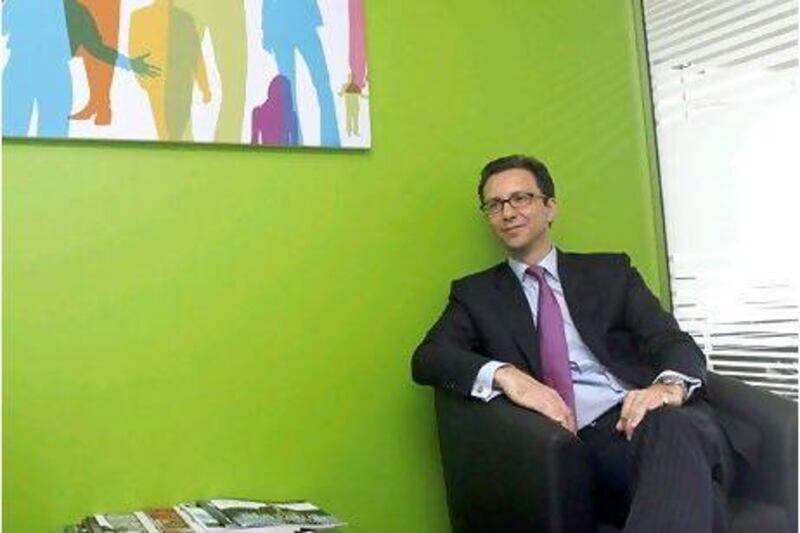Describe your financial journey so far.
I grew up in Bahrain after moving there at five with my parents because my father was working in the aviation industry. After going to school there for four years, I spent the rest of my education at a military boarding school in the UK. I planned to join the army, but after university I changed my mind and lived in Oman for a brief time running a diving operation. Those were the carefree days. I suppose my financial journey mirrors the typical route that people take in life. When you are younger, you have a great deal of financial freedom because you have no responsibilities. Then, as you get older and have children - my daughter is two and my son is three-and-a-half years - you think about the needs of your family. My background is in management consulting and after working in the UK for five years, I came here in 2002 to specialise in hotels. Contrary to many who arrive in Dubai, I got into a saving mentality from the start. I'm quite averse to debt, particularly in this region where there is a lot of uncertainty.
What do like to invest in?
I like to have a diversified portfolio with both property and equities. The more interesting things I like to invest in are antiques from the Middle East, which stems from a lifetime association with the region. I've invested quite heavily in antique weaponry, in particular Omani and Yemeni rifles and swords. I've also invested in original artwork from Bahrain to Syria, copper and even an antique wooden door from Oman. If you go into my house, it's like a treasure trove of Middle Eastern antiques and some have proved to be very good investments.
Are you a spender or a saver?
In my head, I am a saver and the saving mentality predominates, but I'm definitely prone to splurges when the heart takes over. The three biggest investments I've made in the past 10 years have been almost on impulse and without consulting my wife. I bought a Porsche and invested in commercial and residential property in Abu Dhabi. When I bought the Porsche, I thought, "I've just surrendered myself to becoming the stereotypical Dubai British expat". But I bought it because I like racing cars and could afford it. I've since sold it because I've become far more practical in my old age.
What is your philosophy towards money?
If you haven't got it - don't spend it. I'm in a fortunate position in that I don't have any debt and that makes me feel secure. But my philosophy from a business point of view is that it's often very wise to borrow money and put it against the business rather than using your own money. If you have an idea and want to grow a business, then debt is an important component of growth.
What has been your most valuable financial lesson?
Listen to your wife! My wife is a chartered accountant and the one or two bad decisions I have made, particularly in regards to property, I made without consulting her because she was in the UK at the time. I don't know whether it's a regret because I believe that one day the property investment in Abu Dhabi will turn round and prove to be profitable again, but if I could go back in time and undo the purchase I would.
Why did you decide to set up your own business?
I set up my own hotel consultancy business with a partner in early 2011 because we liked the idea of being able to do things differently. A lot of people asked us what we were doing setting up in the middle of the downturn, but we really identified and believed we could make a difference to our clients based on our philosophy and the advice we gave. It was certainly risky, but within 12 months Christie & Co had acquired us to establish their Mena presence here. It was a great opportunity.
Have you experienced any financial difficulties along the way?
Nothing particularly painful, but like many I've seen a large decrease in value in my property investments and seen my equity portfolio decline by 40 to 50 per cent. They are not financial difficulties as such because I have not had to realise my losses yet. So while the scenario looks quite bad on paper, if you can afford to hold on, then everything should be OK.
What has been your biggest financial challenge?
When I set up my own business at the same time as my wife giving up a very well-paid job and the birth of our second child. It was challenging initially, but it's not a long-term challenge. When you think about how much children cost these days, then the biggest financial challenge is down the road.







